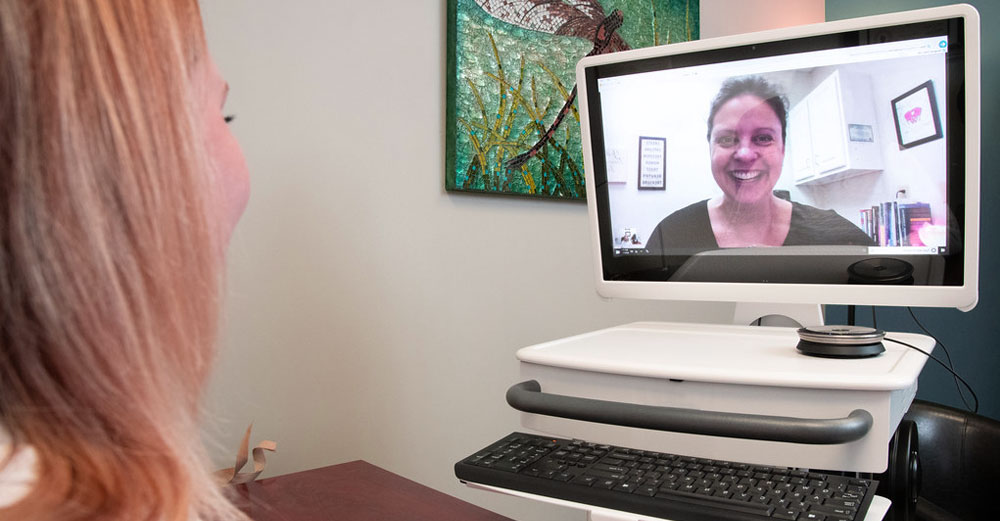
As the month of September comes to a close, so does this year’s National Suicide Awareness Month. But our focus on treating and finding solutions to the issues and conditions that affect so many goes all year long. Non-profits dedicated to mental health, such as NAMI, note that this month is needed to draw attention to this stigmatized topic, and also serves as a catalyst to raise awareness and inform the general public about treatment services and additional mental health resources. And, this year has posed unique stressful situations due to COVID-19, which may negatively affect one’s mental health.
With a specific focus on college students, Michigan University’s Department of Psychiatry notes that college students already “experience higher rates of anxiety and depression compared to the general population,” and the added isolation that college students are going through as a result of COVID-19 may only make matters worse. Keeping this in mind, SUNY continues to offer and develop resources for our students so that they can feel more secure about their mental health and wellbeing.
For example, our campuses feature student counseling centers where students can participate in individual, group, and peer talk therapy. Additionally, over the past few years, SUNY System Administration employees and campus personnel have been hard at work to develop a crisis text hotline; Question, Persuade, and Refer (QPR) training for individuals who interact with students; and a Student Telecounseling Network.
Social-Distance Approved: Student Telecounseling Network
Given COVID-19’s impact on college reopening plans and many students not returning to campus for the fall semester, being able to access therapy and counseling services through a mediated platform is important. The idea for SUNY’s Student Telecounseling Network was born out of a working group that first convened in 2015 and discussed the increase in requests for mental health services on college campuses. Following this meeting, and enabled by funding from the New York State Legislature, SUNY’s Office of Academic Health and Hospital Affairs launched a mental health telecounseling pilot in the spring of 2018.
The first year, being a pilot, started with four campuses (SUNY Oneonta, Onondaga Community College, SUNY Oswego, and SUNY Poly) and one clinical site (SUNY Upstate Medical Center). Since then, six additional campuses have joined (Binghamton University, SUNY Cobleskill, SUNY Morrisville, Nassau Community College, SUNY New Paltz, and SUNY Potsdam). Thus far, the telecounseling program has connected students to a physician, psychologist, or nurse practitioner at SUNY Upstate who are trained to help with mental health issues, such as anxiety, depression, and eating disorders. As the program continues to expand, the goal is to offer these services on all SUNY campuses and de-stigmatize mental health issues in college students.
Crisis Texting and Campus Personnel Training
It’s no secret that we are living in an increasingly technological world, and with that has brought about the creation of accessing services via text. Another option for mental health services for SUNY students is our Crisis Text Line, which was created to help SUNY students, faculty, and staff navigate everyday and individual emotional challenges. The text line can be accessed 24/7 by testing Got5U to 741-741. Specifically, the text line can be utilized to alleviate depression, anxiety, stress, and suicidal thoughts, as well as discuss substance use, relationship issues, domestic violence, school stressors, and any mental health issues related to the COVID-19 pandemic.
While our campuses are practicing social distancing, face-to-face communication still is an important way to process one’s stressors and mental health issues. Many times, students may approach a faculty member they feel close with to discuss these matters, even though the faculty member may not have a background in counseling or psychology. SUNY has recently rolled out QPR trainings across the system to ensure that individuals at our campuses who interact with students receive proper training regarding emotional distress.
The training is designed to educate participants on how to recognize if someone is experiencing emotional distress or having suicidal thoughts, and how to best engage and connect that individual to resources that can help. A great benefit of this training is that anyone can practice it, no matter her or his background, and the training materials are appropriate in all interpersonal relationships. Interested participants do not need clinical training, so members of the SUNY community can register here to start the training program.
In offering a variety of services, it is hoped that all of our students have access to mental health services that best support them during their time of need, especially during the COVID-19 pandemic. SUNY schools offer a full list of campus Student Counseling Centers, but if you or someone you know is struggling with their mental health, you can visit the National Institute of Mental Health to find a list of resources that can help you, a friend, or a family member in need.




Thank you very much to all those who came up with and gave people such an opportunity in these difficult days for all of us. With the spread of the coronavirus, there has been a lot more stress and even less support. People who already have certain mental problems now suffer even more. And when, if not in our youth, our psyche is most vulnerable? This is an excellent solution for all those who are experiencing problems but do not want to talk about them to relatives and friends. Everyone needs support at a time like this. So this is a truly great idea.